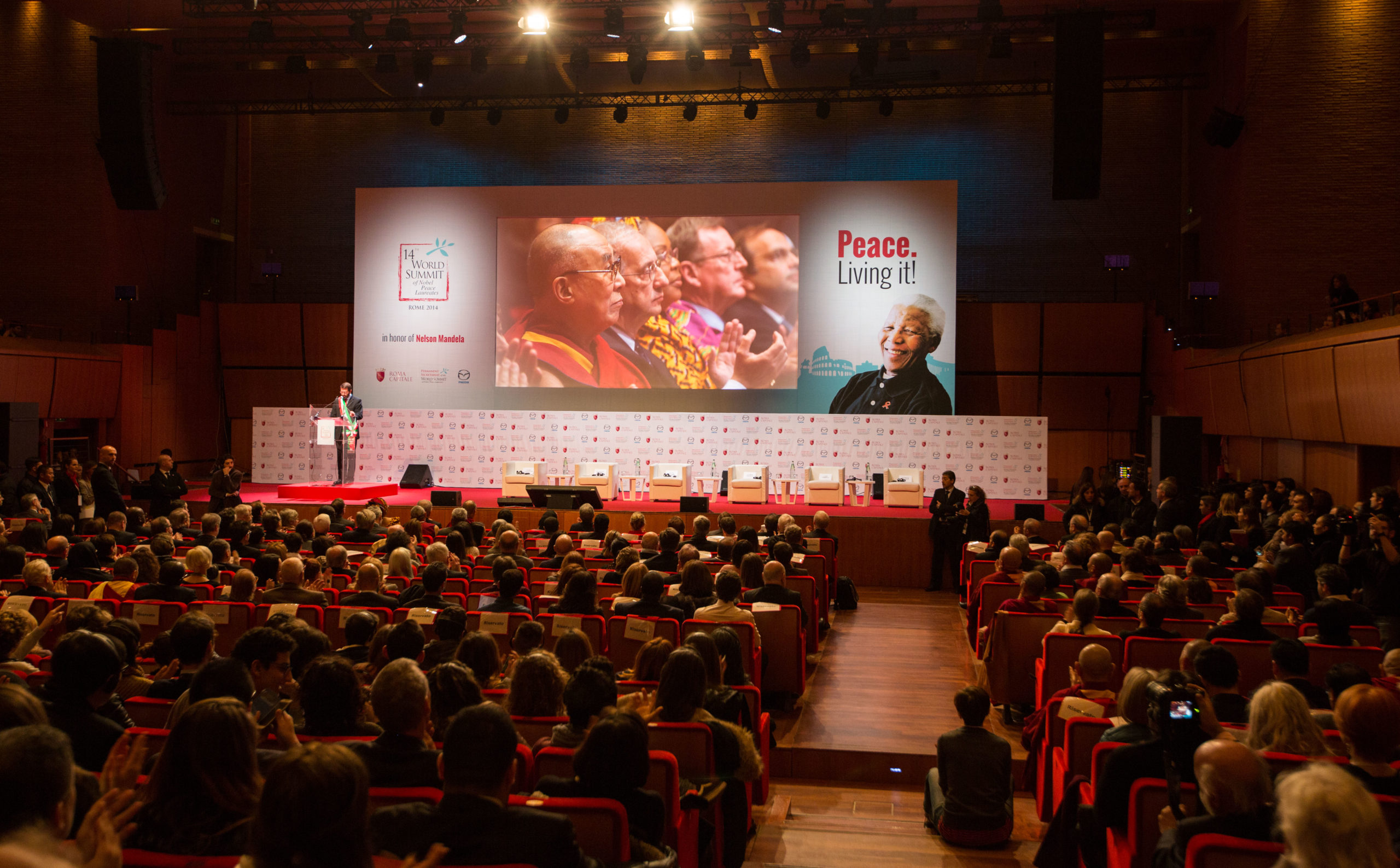
Pugwash Conferences on Science and World Affairs is an international pacifist organization bringing together scholars and public figures in order to reduce the threat of wars, nuclear dangers, and to search peaceful resolutions to all the international conflicts.
The Pugwash Conferences were founded in 1957 by Joseph (actually Józef) Robtblat and Bertrand Russell. The founding of that platform implemented the postulate formulated in the famous Russell-Einstein Manifesto of 1955.
Written on the initiative of Russell, a British philosopher, writer, and mathematician at the most insecure moment of the Cold War and the greatest threat of a nuclear conflict, the Manifesto urged world leaders to seek peaceful resolutions to world conflicts.
Russell’s Manifesto was signed by 11 famous scientists and intellectuals, these including Albert Einstein who did so several days before his death. The youngest of the signatories was Poland-born physicist working in Great Britain Joseph Rotblat, the only scientist to resign on moral grounds work on the Manhattan Project (American programme do devise and construct nuclear weapons). As Rotblat wrote in his article for ‘The New York Times’, Einstein’s signing of the Manifesto was ‘his final public act’ and the last message he wanted to send to the world threatened with nuclear destruction.
Several days after the Russell-Einstein Manifesto had been published, the millionaire and philanthropist Cyrus S. Eaton proposed to host the conference called for by the document signatories in his native Canadian village called Pugwash. In July 1957, scientists arrived there in order to attend the first of conferences, while the thus born movement was to be called the Pugwash Conferences on Science and World Affairs. That first meeting brought together 22 scientists, among them Marian Danysz, a Polish physicist of Warsaw University.
In compliance with the Russel-Einstein Manifesto, the scientists’ major goal was to initially assess the risk related to the weapons of mass destruction. With time, the most important aim of the Pugwash Conferences participants became the ‘elimination of all weapons of mass destruction (nuclear, chemical, and biological) and wars as means to solving international conflicts’. The goal is to be attained through non-violent conflict resolution, dialogue, and mutual understanding.
The actual work of the Pugwash Confrences consists in holding conferences, seminars, investigation groups, providing consultancy and launching special projects. An important aspect of their activity is establishing ‘communication networks’ among scientists, researchers, as well as individuals boasting government, diplomacy, or army experience. Providing a platform for a debate among groups of individuals of the kind, allows for a factually-grounded analysis of world problems the resolutions to which may be sought where science borders on international politics.
The organization investigates and analyzes such problems as threats of nuclear proliferation, particularly in the regions of potential conflicts, like in the Middle East or South-Central Asia: nuclear programmes of Iran, India, Pakistan, Israel; as well as areas of potential conflicts or long-standing antagonisms with a possible danger of confrontation, as between India and Pakistan.
Pughwash Conferences participants also analyze such social and political processes, as the Arab Spring or the development of radical Islamic movements, the growing tension between Iran working on its nuclear programme and Israel which already has nuclear weapons.
In 1995, fifty years after the bombs on Hiroshima and Nagasaki, also forty years after the Russell-Einstein Manifesto had been signed, Pugwash Conferences and Joseph Rotblat were jointly awarded the Nobel Peace Prize for ‘for their efforts to diminish the part played by nuclear arms in international politics and in the longer run to eliminate such arms’. The Norwegian Nobel Committee decided that awarding both the Pugwash Conferences and Rotblat ‘will encourage world leaders to intensify their efforts to rid the world of nuclear weapons’.
PCSWA has provided research and analyses instrumental for negotiating such agreements as the Nuclear Nonproliferation Treaty in 1968, the 1972 ABM treaty between the United States and USSR, or the Chemical Weapons Convention of 1993. Furthermore, Pugwash Conferences participants have been involved in Track Two Diplomacy (informal diplomacy between countries which often have no diplomatic relations) meant to establish a dialogue, prevent tension escalation, and seek conflict resolution or confidence-building.
PCSWA tries to lobby among politicians by providing them with the outcome of their research and debates. Moreover, the organization hosts special meetings for scientists enabling them to stay in close touch with academic circles and research centres.
Serving as the current President of the Pugwash Conferences is Jayantha Dhanapala, a former Ambassador of Sri Lanka to the US and UN; the physicist and mathematician, as well as a peace activist Paolo Cotta-Ramusino is the organization’s Secretary-General. In 1988-97, its President was Rotblat who apart from having been awarded with the Nobel Peace Prize has received a knighthood. As a matter of fact, among Pugwash Conferences’ leaders there have been Nobel Laureates, illustrious scientists, and winners of the most prestigious academic awards.
In 2005, Sir Rotblat who always spoke of himself as a Pole with a British passport, wrote in the article for ‘The New York Times’: ‘Today we confront the possibilities of nuclear terrorism (…). The two former superpowers still hold enormous nuclear arsenals. North Korea and Iran are advancing their capability to build nuclear weapons. (…) The result could be a new nuclear arms race’. The challenges which were relevant in 1957 when the Pugwash movement was first established are as relevant today, warned 97-year-old Rotblat.
Marta Fita-Czuchnowska (PAP)
[divider scroll_text=”Back to Top”]

